
BEIJING, Feb. 2 (Xinhua) -- Based on John Kerry's past statements and actions, President Barack Obama's choice for his new Secretary of State signals a preference for pragmatism and continuity in U.S. diplomacy, including China policy, in the next four years.
Kerry is widely expected to take a practical and rational approach toward Beijing, but a larger question is looming over him -- how will he help establish an enduring pattern of win-win cooperation, mutual trust and favorable interaction between the world's largest developed nation and the world's largest developing country?
In response to China's overture to creating a new type of relationship between major powers, Hillary Clinton, Kerry's predecessor, has notably said: "Together the United States and China are trying to do something that is historically unprecedented, to write a new answer to the age-old question of what happens when an established power and a rising power meet."
It was a good opening and indicates that, despite all the differences, frictions and disputes between the two countries, the decision-makers from both sides have a general consensus on what should be the best constant form of their future relations.
Obama and his foreign policy team, including Clinton, should be given credit for building on the efforts of past administrations and maintaining a generally stable and ever-growing relationship with China during the past four years.
During that period, the two-way economic ties continued to flourish while people-to-people connections between the two nations moved closer than ever.
Everyday, about 10,000 people travel between the two countries, equal to the total number of the personnel exchange in a year four decades ago.
On the governmental level, a myriad of dialogue mechanisms are at work between the two nations, which help to expand their consensus and manage their disputes.
The two sides also have worked together on more global issues than before, including nonproliferation, hotspot regions, economic recovery, climate change, counterterrorism, climate change, food security, and disease control.
Of course, the relationship hasn't been all smooth and flash points do exist, but with efforts from both sides, disputes and controversies have so far been kept under control.
Now, as the new helmsman of U.S. diplomacy, it is Kerry's turn to pick up what the foreign policy team of the first Obama administration started in trying to foster a new pattern of U.S.-China ties.
After sitting on the bench of the Senate Foreign Relations Committee for 28 years, including four years as its chairman, Kerry seems to have a good understanding of the U.S.-China relationship.
Kerry has said publicly several times in recent years that U.S.-China relations should be viewed from a long-term perspective, as the bilateral cooperation is now indispensable to solving almost every global problem and the two countries are actually on the same boat in a turbulent world economy.
Last week, he echoed this line during his confirmation hearing in the Senate, saying "it is critical to us to strengthen our relationship in China." In addition, throughout his Senate years, Kerry has generally voted for bills that aim to strengthen the bilateral relationship and opposed those that would undermine it.
The new U.S. top diplomat is known for his pragmatism and experience, but breaking the historical pattern of inter-power rivalry and building an enduring, new relationship with China also requires the sincerity and courage to put one's words into action.
The stakes are high, since much of the world's future depends on the relationship between the two largest economies, as both sides have already recognized.
The task is urgent because not a single global challenge can be solved without cooperation between China and the United States, as Kerry has wisely pointed out.
But chances also look good with pragmatists such as Kerry now in the driver's seat, trying to steer the relationship toward a better outcome.
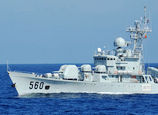


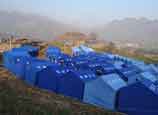
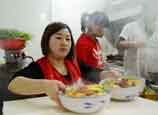
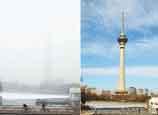


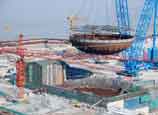
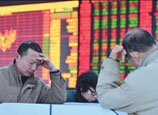






 H.K. limits visitors' buying of infant formula
H.K. limits visitors' buying of infant formula


![]()
